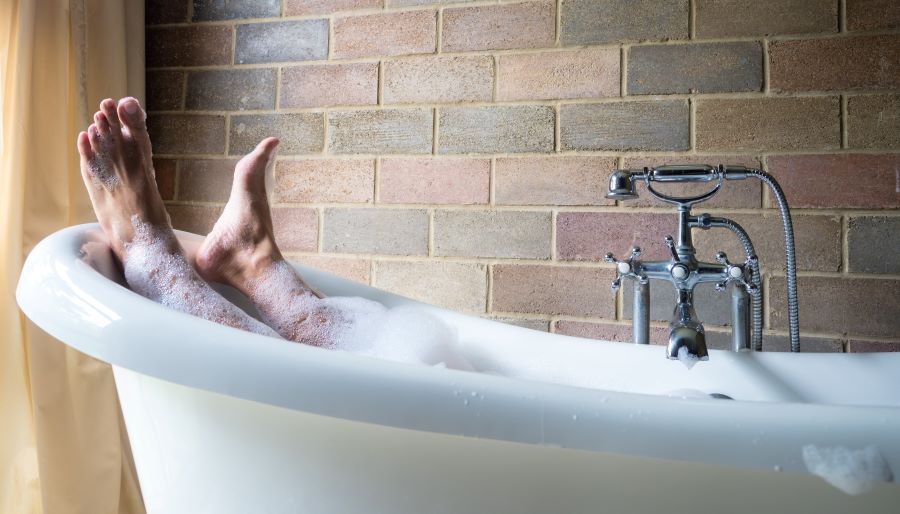
Reducing the Environmental Impact of Heating Water
When you think about major home appliances, your mind usually goes straight to the kitchen, or maybe the laundry. But the biggest workhorses in the house are the least visible: your home heating appliances and water heater. The lowly, uncool water heater may not draw attention like a shiny new refrigerator. But it draws more energy than any other appliance in the house except the furnace. Paying some attention to how you get your hot water can make a big difference in your home’s carbon footprint.
The Impact of Water Heaters
Gas boilers that provide hot water and heat the home through radiators use more energy and create more greenhouse gas emissions than any other home appliance – about 2,200 kg CO2/year. Home heating accounts for more energy use than water heating does. But even if your water heater is separate from your home heating system, water heating accounts for about 17% of an average family’s energy usage. That’s about 4,000 watts a year. The average American household spends between $400 and $600 each year burning energy to heat their water.

Choosing a Better Water Heater
It is generally more environmentally responsible to use things for as long as possible before replacing them. You can make some simple water heater repairs yourself, but eventually, it makes more sense to replace than repair. If your water heater was installed before 2015, feel confident replacing it sooner. New energy efficiency standards that took effect in 2015 ensured that new large tank water heaters use 47% less energy. There are rebates for most Energy Star options, whether tankless or not and regardless of the energy source.
There are two kinds of water heater: tank and tankless. While tankless water heaters are common in Europe and Asia, most American homes use water heaters with large storage tanks. But as with clothes dryers, the American standard is generally much less efficient than the global one. Tankless water heaters require less space, last almost twice as long, and cost an average $100 less per year to operate than standard storage tank heaters. Energy Star-certified tankless water heaters save an additional 10% over standard tankless heaters. However, converting to tankless can be a challenge, especially in older homes. It may require permits, the installation of a gas line, or major upgrades to the home’s electrical system.
If tankless is not an option, you are not out of luck. Consider a solar water heating system. They earned a bad reputation in the 1980s, but modern solar water heating systems are reliable and efficient. Leaky water-based systems have been replaced by thermal fluids, and tempering valves have improved system consistency. Even so, most solar water designs still incorporate an electric or gas back-up water heater. Energy Star-certified solar water heating systems can cut your annual hot water costs in half while custom-designed systems might eliminate them entirely.
Another highly efficient water heating system that still uses a storage tank is the heat pump water heater. HPWHs are up to four times more efficient and use 70% less energy than a standard model. Often called hybrid electric systems, HPWHs are eligible for a $300 federal tax credit. They use electricity to move heat from one place to another instead of using it to generate heat directly. Like tankless heaters, HPWHs have unique requirements in terms of placement and available space compared to a conventional electric resistance unit.
Your best choice will depend on your budget, the space available, and the number of people who live in your home. Whatever water heater you end up choosing, it can take some work to recycle your old appliance. When you buy your new heater, ask if the retailer participates in an appliance take-back program for recycling.

Improved Efficiency
For every 10° F you lower your hot water heater, you can save 3% to 5% a year in energy. Lowering the temperature of your water heater also reduces mineral buildup and corrosion in the tank and in the pipes. Besides lowering the temperature, most techniques for reducing energy use from water heating affect water use after the water has left the heater. Good home maintenance makes a difference – insulate your pipes and take care of any leaks. Use low-water clothes washers and dishwashers, and wash laundry in cold water. Using less hot water by taking shorter showers and turning off the tap when washing hands and dishes in the sink will further cut your utility bill and your emissions.